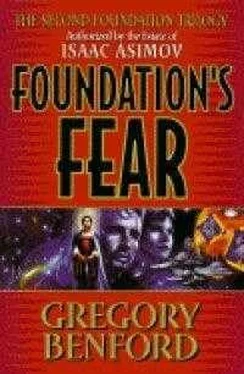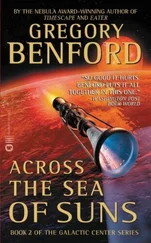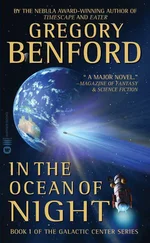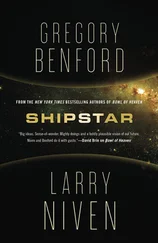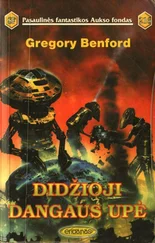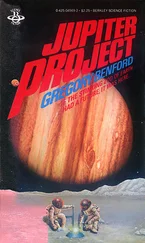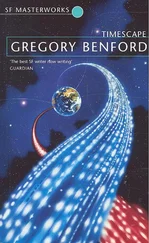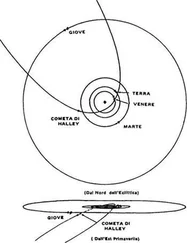Gregory Benford - Foundation’s Fear
Здесь есть возможность читать онлайн «Gregory Benford - Foundation’s Fear» весь текст электронной книги совершенно бесплатно (целиком полную версию без сокращений). В некоторых случаях можно слушать аудио, скачать через торрент в формате fb2 и присутствует краткое содержание. Год выпуска: 1997, ISBN: 1997, Издательство: Orbit, Жанр: Фантастика и фэнтези, на английском языке. Описание произведения, (предисловие) а так же отзывы посетителей доступны на портале библиотеки ЛибКат.
- Название:Foundation’s Fear
- Автор:
- Издательство:Orbit
- Жанр:
- Год:1997
- ISBN:ISBN: 0-06-105243-4
- Рейтинг книги:4 / 5. Голосов: 1
-
Избранное:Добавить в избранное
- Отзывы:
-
Ваша оценка:
- 80
- 1
- 2
- 3
- 4
- 5
Foundation’s Fear: краткое содержание, описание и аннотация
Предлагаем к чтению аннотацию, описание, краткое содержание или предисловие (зависит от того, что написал сам автор книги «Foundation’s Fear»). Если вы не нашли необходимую информацию о книге — напишите в комментариях, мы постараемся отыскать её.
Foundation’s Fear — читать онлайн бесплатно полную книгу (весь текст) целиком
Ниже представлен текст книги, разбитый по страницам. Система сохранения места последней прочитанной страницы, позволяет с удобством читать онлайн бесплатно книгу «Foundation’s Fear», без необходимости каждый раз заново искать на чём Вы остановились. Поставьте закладку, и сможете в любой момент перейти на страницу, на которой закончили чтение.
Интервал:
Закладка:
And Lamurk looked the fool, with bulging eyes and pouting lips.
“Time for a graceful exit,” Hari’s lieutenant whispered. Hari was only too glad to agree.
When they got home, he was sure that there had been a bit extra in the stim he was handed, something that freed his tongue. Certainly it was not the slow-spoken, reflective Seldon who had traded jabs with Lamurk. He would have to watch that.
Dors simply shook her head. “It was you. Just a portion of you that doesn’t get out to play very much.”
6.
“Parties are supposed to cheer people up,” Yugo said, sliding a cup of kaff across Hari’s smooth mahogany desktop.
“Not this one,” Hari said.
“All that luxury, powerful people, beautiful women, witty hangers-on-I think I could have stayed awake.”
“That’s what depresses me, thinking back over it. All that power! And nobody there seems to care about our decline.”
“Isn’t there some old saying about-”
“Fiddling while Roma burns. Dors knew it, of course. She says it’s from pre-Empire, about a Zone with pretensions of grandeur. ‘ All worms lead to Roma’ is another one.”
“Never heard of this Roma.”
“Me either, but pomposity springs forth eternal. It looks comic in retrospect.”
Yugo moved restlessly around Hari’s office. “So they don’t care?”
“To them it’s just backdrop for their power games.” Already the Empire had worlds, Zones, and even whole arcs of spiral arms descended into squalor. Still worse, in a way, was a steady slide into garish amusements, even vulgarity. The media swarmed with the stuff. The new “renaissance” styles from worlds like Sark were popular.
To Hari the best of the Empire was its strands of restraint, of subtlety and discretion in manners, finesse and charm, intelligence, talent, and even glamour. Helicon had been crude and rural, but it knew the difference between silk and swine.
“What do the policy types say?” Yugo sat halfway on Hari’s desk, avoiding the control functions implanted beneath a woody veneer. He had come in with the kaff as a pretext, fishing for gossip about the exalted. Hari smiled to himself; people relished some aspects of hierarchy, however much they griped about it.
“They’re hoping some of the ‘moral rebirth’ movements-like revised Ruellianism, say-will take hold. Put spine into the Zones, one of them said.”
“ Ummm. Think it’ll work?”
“Not for long.”
Ideology was an uncertain cement. Even religious fervor could not glue an empire together for long. Either force could drive formation of an empire, but they could not hold against greater, steady tides-principally, economics.
“How about the war in the Orion Zone?”
“Nobody mentioned it.”
“Think we’ve got war figured right in the equations?” Yugo had a knack for suddenly putting his finger on what was bothering Hari.
“No. War was an overesteemed element in history.”
Certainly war often gained center stage; no one continued to read a beautiful poem when a fist fight broke out nearby. But fist fights did not last, either. Further, they joggled the elbows of those trying to make a living. To engineers and traders alike, war did not pay. So why did wars break out now, with all the economic weight of the Empire against them?
“Wars are simple. But we’re missing something basic-I can feel it.”
“We’ve based the matrices on all that historical data Dors dug out,” Yugo said a bit defensively. “That’s solid.”
“I don’t doubt it. Still…”
“Look, we’ve got over twelve thousand years of hard facts. I built the model on that.”
“I have a feeling what we’re missing isn’t subtle.”
Most collapses were not from abstruse causes. In the early days of Empire consolidation, local minor sovereignties flourished, then died. There were recurrent themes in their histories.
Again and again, star-spanning realms collapsed under the weight of excessive taxation. Sometimes the taxes supported mercenary armies which defended against neighbors, or which simply kept domestic order against centrifugal forces. Whatever the ostensible cause of taxes, soon enough the great cities became depopulated, as people fled the tax collectors, seeking “rural peace.”
But why did they do that spontaneously?
“People.” Hari sat up suddenly. “That’s what we’re missing. “
“Huh? You proved yourself-remember? the Reductionist Theorem?-that individuals don’t matter.”
“They don’t. But people do. Our coupled equations describe them in the mass, but we don’t know the critical drivers.”
“That’s all hidden, down in the data.”
“Maybe not. What if we were big spiders, instead of primates? Would psychohistory look the same?”
Yugo frowned. “Well…if the data were the same…”
“Data on trade, wars, population statistics? It wouldn’t matter whether we were counting spiders instead of people?”
Yugo shook his head, his face clouding, unwilling to concede a point that might topple years of work. “It’s gotta be there.”
“Your coming in here to get details of what the rich and famous do at their revels-where’s that in the equations?”
Yugo’s mouth twisted, irked now. “That stuff, it doesn’t matter.”
“Who says?”
“Well, history-”
“Is written by the winners, true enough. But how do the great generals get men and women to march through freezing mud? When won’t they march?”
“Nobody knows.”
“We need to know. Or rather, the equations do.”
“How?”
“I don’t know.”
“Go to the historians?”
Hari laughed. He shared Dors’ contempt for most of her profession. The current fashion in the study of the past was a matter of taste, not data.
He had once thought that history was simply a matter of grubbing in musty cyberfiles. Then, if Dors would show him how to track down data-whether encoded in ancient ferrite cylinders or polymer blocks or strandware -then he would have a firm basis for mathematics. Didn’t Dors and other historians simply add one more brick of knowledge to an ever-growing monument?
The current style, though, was to marshal the past into a preferred flavor. Factions fought over the antiquity, over “their” history vs. “ours.” Fringes flourished. The “spiral-centric” held that historical forces spread along spiral arms, whereas the “Hub-focused” maintained that the Galactic Center was the true mediating agency for causes, trends, movements, evolution. Technocrats contended with Naturals, who felt that innate human qualities drove change.
Among myriad facts and footnotes, specialists saw present politics mirrored in the past. As the present fractured and transfigured, there seemed no point of reference outside history itself-an unreliable platform indeed, especially when one realized how many mysterious gaps there were in the records. All this seemed to Hari to be more fashion than foundation. There was no uncontested past.
What contained the centrifugal forces of relativism-let me have my viewpoint and you can have yours-was an arena of broad agreement. Most people generally held that the Empire was good, overall. That the long periods of stasis had been the best times, for change always cost someone. That above the competing throng, through the factions shouting what were essentially family stories at each other, there was worth in comprehending where humanity had passed, what it had done.
But there agreement stopped. Few seemed concerned with where humanity, or even the Empire, was going. He had come to suspect that the subject was ignored, in favor of your-history-against-mine, because most historians unconsciously dreaded the future. They sensed the decline in their souls and knew that over the horizon lay not yet another shift-then-stasis but a collapse.
Читать дальшеИнтервал:
Закладка:
Похожие книги на «Foundation’s Fear»
Представляем Вашему вниманию похожие книги на «Foundation’s Fear» списком для выбора. Мы отобрали схожую по названию и смыслу литературу в надежде предоставить читателям больше вариантов отыскать новые, интересные, ещё непрочитанные произведения.
Обсуждение, отзывы о книге «Foundation’s Fear» и просто собственные мнения читателей. Оставьте ваши комментарии, напишите, что Вы думаете о произведении, его смысле или главных героях. Укажите что конкретно понравилось, а что нет, и почему Вы так считаете.
